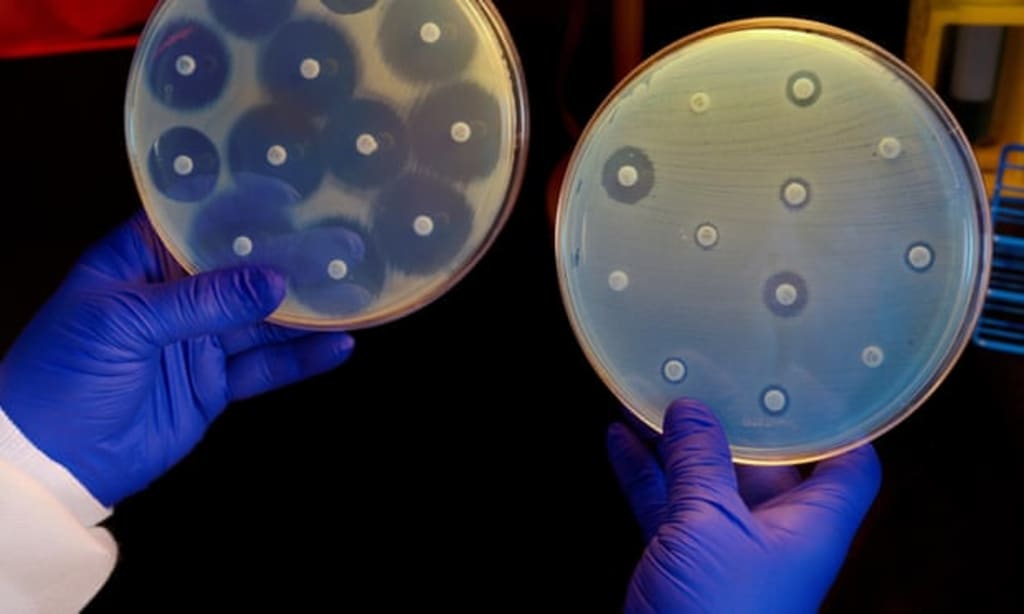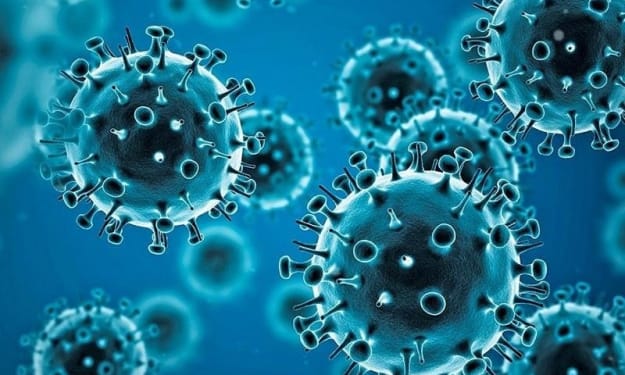According to a new study, antimicrobial resistance is now the greatest cause of mortality globally.
Antibiotic-resistant bacterial illnesses require immediate attention, according to a Lancet review.

Antimicrobial resistance is a major threat to civilization, according to health officials, as a research shows it has become a main cause of mortality globally, killing almost 3,500 people every day.
According to the most complete assessment of the worldwide effect of antimicrobial resistance to date, more than 1.2 million people died in 2019 as a direct result of antibiotic-resistant bacterial illnesses, with millions more possibly dying (AMR).
The Lancet released the sobering analysis, which included more than 200 nations and territories. According to the report, AMR kills more people than HIV/AIDS or malaria. According to the study, the bacteria that cause common, previously curable diseases have evolved resistant to treatment, resulting in hundreds of thousands of fatalities.
"These new statistics indicate the full scope of antimicrobial resistance throughout the world, and they're a strong warning that we need to act immediately to tackle the danger," said paper co-author Prof Chris Murray of the University of Washington's Institute for Health Metrics and Evaluation.
"If we want to stay ahead in the fight against antimicrobial resistance, we need to use this data to course-correct action and promote innovation."
Previous estimates of AMR's health effect have been published for a number of countries and regions, as well as a limited number of pathogen-drug combinations in a larger number of places. However, no estimations have yet been made that include all regions or a wide range of infections and therapy combinations.
In 2019, fatalities associated to 23 infections and 88 pathogen-drug combinations are expected in 204 countries and territories, according to the latest Global Research on Antimicrobial Resistance (Gram) study. Using more than 470 million individual records acquired from comprehensive literature studies, hospital systems, surveillance systems, and other data sources, statistical modeling was applied to create estimates of the effect of AMR in all sites - even those with no data.
According to the findings, AMR was directly responsible for an estimated 1.27 million deaths worldwide in 2019 and was linked to an estimated 4.95 million fatalities. In 2019, HIV/AIDS and malaria are expected to have killed 860,000 and 640,000 people, respectively.
While AMR is a concern to people of all ages, it has been shown that young children are particularly vulnerable, with one in every five deaths due to AMR happening in children under the age of five.
The research emphasizes the urgent need to ramp up antimicrobial resistance (AMR) efforts, as well as timely legislative steps that can help save lives and defend health systems. These include increasing financing for the development of novel antibiotics and therapies, optimizing the use of current medicines, and taking more action to monitor and manage infections.
Dame Sally Davies, the UK's special envoy on antimicrobial resistance, called AMR "one of humanity's biggest problems." "Behind these new figures are families and communities painfully facing the burden of the silent AMR pandemic," she continued. This information must be used as a warning signal to motivate action at all levels."
AMR-related mortality were expected to be greatest in Sub-Saharan Africa and south Asia, with 24 and 22 deaths per 100,000 people, respectively.
AMR caused 13 deaths per 100,000 in high-income nations and was linked to 56 fatalities per 100,000 in low-income countries. More than 51,000 individuals died as a direct result of AMR in Western Europe, which includes the United Kingdom.
Covid-19, according to some experts, underlined the necessity of worldwide commitments to infection prevention and control measures, including as handwashing and surveillance, as well as swift expenditures in therapies.
"The Covid-19 epidemic has emphasized the significance of global collaboration: government leaders, the healthcare community, the corporate sector, and the public working together to fight a global health concern," said Tim Jinks, the head of the Wellcome Trust's drug-resistant infections initiative.
"Like Covid-19, we know what has to be done to combat AMR, but if we are to be successful, we must now join together with a feeling of urgency and worldwide solidarity."






Comments
There are no comments for this story
Be the first to respond and start the conversation.